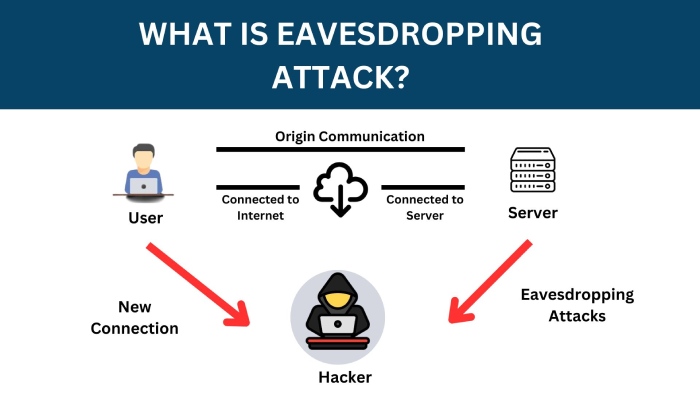In a recent study, Cornell University researchers have uncovered a startling new threat to cybersecurity: the use of AI models to steal passwords by analyzing the acoustic side-channel, or the sounds made while typing on a keyboard. This AI model achieved an alarming 95% accuracy rate in stealing passwords — the highest accuracy seen without the use of a language model, which emphasizes the need for increased vigilance in digital security.
About The Study
The researchers harnessed machine learning algorithms to develop a system capable of identifying keystrokes based solely on the sounds they produce.
To conduct their experiment, the researchers pressed each of the 36 keys on a MacBook Pro multiple times using different fingers and pressures. Keystroke sounds were recorded in two scenarios: over a Zoom call and via a nearby smartphone.
The recorded sounds were transformed into spectrograms, which were fed into an AI model called CoAtNet, known for its ability to classify spectrogram images even with a relatively small dataset. However, it’s essential to note that this AI model requires prior exposure to data from a specific source, such as a commonly used laptop keyboard.
In this study, the team trained the machine learning system using a dataset of over 100,000 keystroke recordings. The AI system was able to discern distinctive sound patterns associated with each key. Although the exact cues employed by the system remain unclear, it is suggested that the position of keys on the keyboard may play a significant role in this differentiation.
When tested, the system accurately identified the correct key from the sound in 95% of cases during a phone call recording and 93% of the time during a Zoom call recording.
The Implications of These Findings
This research has far-reaching implications. It highlights the vulnerability of conventional password entry methods and suggests the need for stronger security measures, like two-factor authentication, biometric verification, or secure hardware tokens.
A new attack vector for hackers
AI-powered keyboard listening attacks could give hackers a new way to steal passwords and other sensitive information, even from users who are careful about their online security.
Increased risk of identity theft and other cybercrimes
If hackers are able to steal passwords using AI-powered keyboard listening attacks, they could use those passwords to gain access to users’ online accounts, including their bank accounts, email accounts, and social media accounts. This could put users at risk of identity theft, financial fraud, and other cybercrimes.
Reduced trust in online services
If users are concerned about their passwords being stolen by AI-powered keyboard listening attacks, they may be less likely to trust online services. This could have a negative impact on the online economy.
Need for new security measures
The development of AI-powered keyboard listening attacks underscores the need for new security measures to protect users’ online accounts. This could include new types of authentication methods, such as two-factor authentication and biometric authentication.
Vulnerability of audio-based communications
The study highlights the potential risks associated with audio-based communications, such as phone calls and video conferences. It raises concerns about the privacy and security of sensitive conversations.
Privacy concerns
As AI models can discern keystrokes by sound, privacy concerns emerge regarding the protection of sensitive information, from personal conversations to confidential business discussions.
Hardware design considerations
Hardware manufacturers may need to rethink keyboard design and consider implementing sound-dampening technologies to reduce the acoustic footprint of keystrokes and make such attacks more challenging.
Ongoing battle against cybersecurity threats
The study serves as a reminder that cybersecurity is an evolving field. Malicious actors continually adapt to exploit vulnerabilities, and it is crucial for security practices and technologies to evolve in response.
Legal and ethical implications
These findings could have legal and ethical ramifications, especially in cases where sensitive information is compromised. It may necessitate the development of new legal frameworks to address acoustic side-channel attacks.
Corporate and government security
Organizations and government entities must be particularly vigilant in light of these findings, as they often handle highly sensitive information. This underscores the importance of investing in robust phishing protection measures.
Protecting Against Acoustic Side-Channel Attacks: Sound Advice
The traditional belief that passwords alone can safeguard our sensitive information needs to be reevaluated. Here are some key defense strategies to safeguard your privacy:
White Noise and Keystroke Apps
Utilize white noise machines or PC applications designed to introduce additional keystroke sounds. These can confuse the eavesdropping algorithm.
Change Your Keyboard
Using a different keyboard or altering your typing style can disrupt established audio waveforms, making it harder for attackers to decipher your keystrokes.
Mechanical Keyboard Customizations
If you have a mechanical keyboard with swappable switches, customizing your key switches can have a similar protective effect.
Biometrics and Password Managers
Reduce reliance on manual password entry by implementing biometrics and robust password managers to enhance security.
An additional challenge arises from the widespread inclusion of built-in microphones in various devices, creating potential privacy concerns. With microphones now present in smartphones and household gadgets, the risk of audio-based eavesdropping is on the rise.
Since AI can steal passwords even when users aren’t directly inputting them, they no longer can rely on the assumption that their passwords are safe when they aren’t actively typing them. The implications are dire, as hackers can exploit this vulnerability to infiltrate accounts and systems without any overt interaction from their targets.
For individuals working from home, the risk is particularly acute, as sensitive information is transmitted over potentially less secure connections. Public Wi-Fi networks and video conferences, once perceived as relatively safe environments, are now potential hotbeds for password theft through these acoustic attacks.
Conclusion
It is important to note that AI-powered keyboard listening attacks are still under development, and they are not yet widely used by hackers. However, the findings of the studies mentioned above suggest that these attacks are a potential threat to users’ online security. The danger lies not only in the theft of passwords but in the covert and passive nature of these attacks, making them particularly insidious.
Therefore, in light of these findings, individuals and organizations should contemplate embracing a more proactive posture on cybersecurity. Among the various strategies, implementing phishing awareness training can greatly contribute to enhancing their defensive mechanisms against cyber threats. Vigilance and readiness are crucial as the digital landscape continues to evolve, ensuring the protection of sensitive data and online identities.


